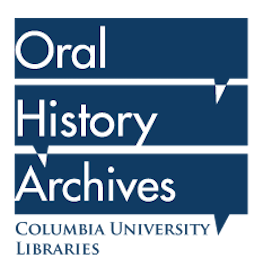Staff

For reference assistance, please see our frequently asked questions page detailing how to use oral histories in our reading rooms, instructions for ordering oral histories, fair use of our materials, and permissions.
CURRENT STAFF
David Amel Olson is the Oral History Archivist for the Oral History Archives at Columbia University's Rare Book & Manuscript Library. Before working at Columbia, David worked with oral history collections documenting the history of the radical left and labor movements at New York University's Tamiment Library and Robert F. Wagner Labor Archives. David holds an MA from NYU in Archives and Public History and an MLIS from Long Island University's Palmer School. His introduction to archives was working at the Social Welfare History Archives, while pursing his BA in history from the University of Minnesota. David has also previously worked in state government and the legal sector.
Dr. Kimberly Springer is Curator for Oral History for the Oral History Archives at Columbia University’s Rare Book & Manuscript Library. She holds a master’s of information science, specializing in archives, preservation and social computing from the University of Michigan - Ann Arbor. She obtained her doctorate from the Women’s Studies Program at Emory University in Atlanta.
STAFF ALUMS
Chelsea Reil served as Project Archivist for the Oral History Archives at Columbia, processing the Obama Presidency Oral History Project and the Jeffrey H. Brodsky Oral History Collection.

The Columbia University Center for Oral History Research (CCOHR) records unique life histories and documenst traditionally-defined majpr historical events CCOHR is housed at the Interdisciplinary Center for Innovative Theory and Empirics (INCITE).

Columbia University’s Oral History Master of Arts (OHMA) Program is a one-year interdisciplinary MA degree training students in oral history method and theory. OHMA offers workshops and teaches oral history as a practice of co-creating dialogic, critical conversations about the past, in the present, which are oriented towards the future.